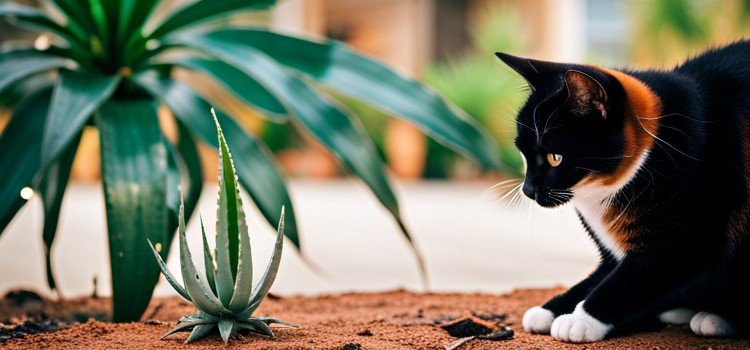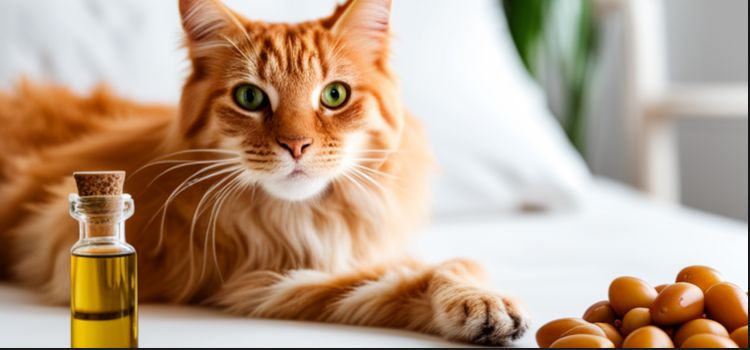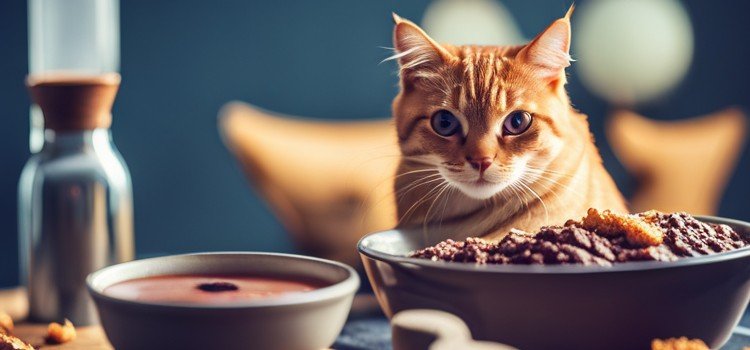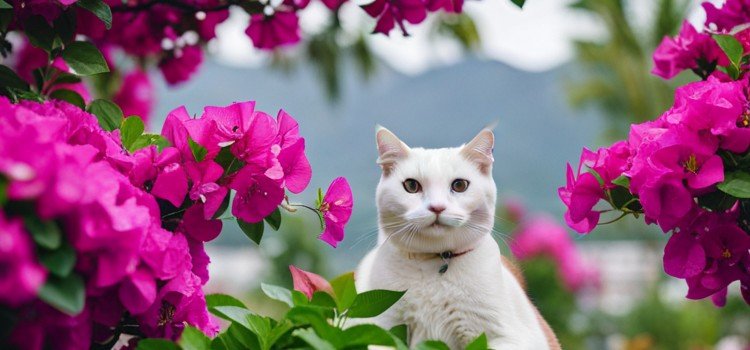As an Amazon Associate committed to the mission of improving the lives of our readers, Live-Clear.com receives a small commission from eligible purchases made through our affiliate links. This revenue enables us to keep producing insightful articles and other material.
Your cat may smell like syrup due to a condition called maple syrup urine disease.
Have you ever seen an unexpected sweet fragrance wafting from your feline companion? If you’re wondering, ‘Why does my cat smell like syrup?’ you’re not alone. This intriguing blog post delves into the enigmatic world of cat scents, focusing on the peculiar phenomenon of a syrup-like aroma emanating from our beloved pets. From grooming habits and dietary influences to potential medical conditions, we uncover the diverse factors that may contribute to this unique olfactory experience.
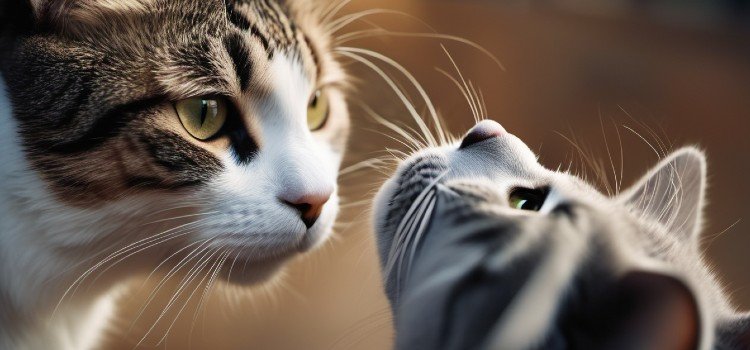
Join us on a journey to understand the science behind your cat’s sweet fragrance, exploring the mysteries that make our feline friends adorable and intriguing olfactory enigmas. Get ready to demystify why your cat smells like syrup and gain valuable insights into ensuring your furry friend’s optimal well-being.
Possible Reasons Why Your Cat Smells Like Syrup
Several reasons could contribute to this unusual odour if you notice your cat emitting a syrup-like scent. Understanding these causes is essential for determining the appropriate course of action. Below, we explore three primary factors that might be responsible for your cat’s sweet fragrance.
Grooming Habits and Hygiene
One possible reason for your cat’s syrupy smell is linked to its grooming habits and overall hygiene. Cats, known for their meticulous grooming routines, may develop issues leading to unusual odors. A potential cause could be a yeast infection on the skin, resulting in a sweet or syrupy fragrance. Mats or tangles in the fur can also trap odors, contributing to the lingering syrup-like smell. Regular brushing and proper grooming practices can effectively address these issues, keeping your cat smelling fresh.
Dietary Factors
The food your cat consumes plays a role in its scent. Certain cat foods contain ingredients that impart a sweet or fruity smell to your cat’s urine, which may transfer to their fur during grooming. Additionally, medical conditions like diabetes or ketosis can cause a fruity or sweet smell in cats. If you suspect your cat’s diet is responsible, consult your veterinarian to explore potential dietary changes or adjustments.
Underlying Medical Conditions
Syrupy odors in your cat could also be indicative of underlying medical conditions. Maple Syrup Urine Disease (MSUD), a rare genetic disorder affecting amino acid metabolism, can cause a maple syrup-like smell in urine and on the skin and coat. Another potential condition is ketoacidosis, which may occur in cats with uncontrolled diabetes, resulting in the production of ketones and a sweet or fruity smell. If you suspect a medical condition, seek prompt veterinary attention for a proper diagnosis and treatment.
In conclusion, investigating the reasons behind your cat’s syrup-like scent is crucial for its well-being. Grooming, hygiene, dietary factors, and potential medical conditions should all be considered. Regular grooming, a balanced diet, and timely veterinary care can contribute to ensuring your cat smells fresh while maintaining optimal health.
Grooming And Hygiene
Proper grooming and hygiene are essential for keeping our feline friends happy and healthy. As pet owners, we often notice unusual odors coming from our cats, and one particular scent that may catch us off guard is the smell of syrup. There are several reasons why your cat may smell like syrup, and in this section, we will explore the role of grooming and hygiene in this curious phenomenon.
Natural Oils And Secretions
Like humans, cats naturally produce oils and secretions that help maintain the health and condition of their fur and skin. These oils are produced by specialized glands in the skin, including the sebaceous glands, which are responsible for lubricating the hair and skin. Sometimes, these oils can give off a sweet, syrup-like smell, especially if they accumulate or become more concentrated in certain areas.
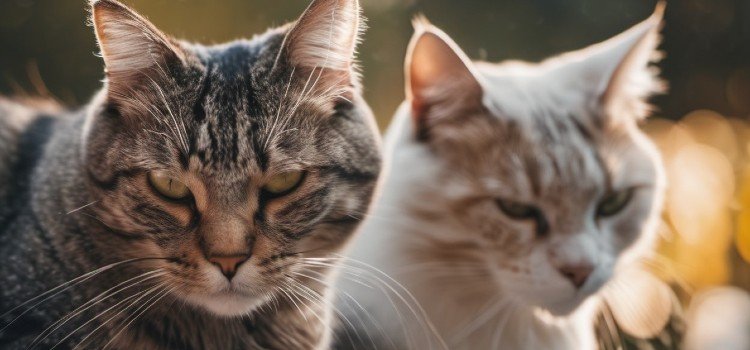
Inadequate Bathing Or Cleaning
Cats are known for their meticulous self-grooming habits, utilizing their tongues to clean their fur and remove dirt and debris. However, if a cat is unable to groom effectively due to mobility issues, obesity, or other health conditions, their fur may become matted or soiled. This can cause the fur to trap odors, including the scent of any residual foods or substances the cat may have come into contact with. Inadequate bathing or cleaning can contribute to a lingering syrup-like smell.
Residual Odors
In some cases, the syrup-like smell on your cat may not be directly related to your furry friend’s grooming habits. Certain substances or environmental factors can leave residual odors on your cat’s fur, giving off a sweet aroma resembling syrup. For example, if you have recently used scented cleaning products on your floors or furniture, your cat may have come into contact with these substances and carried the smell on their fur. Additionally, if your cat has been exploring outdoor areas or interacting with other animals, they may pick up residual odors from their surroundings.
Dietary Factors Of Cat Smell Like Syrup
Dietary factors could be the reason why your cat smells like syrup. Certain cat foods or additives can change their body odor, so it’s important to check their diet for any potential culprits.
Sugar-rich Diet For Cat Smell Like Syrup
Cats that consume a sugar-rich diet are more likely to emit a smell resembling syrup. Their bodies break down sugars, such as glucose and fructose, into usable energy. However, when there is an excess of sugar in the bloodstream, the body may struggle to metabolize it effectively. As a result, some of these unprocessed sugars may be excreted in the urine, leading to a sweet odor.
Fermented Foods
Another possible cause of a cat smelling like syrup is the consumption of fermented foods. Fermentation occurs when microorganisms such as bacteria or yeasts break down carbohydrates in food, producing byproducts as a result. Certain fermented foods, like sauerkraut or kefir, can contain natural sugars that undergo fermentation. If your cat has been indulging in these types of foods, it could contribute to the sweet scent emanating from their body.
Ketones In The Urine Of Cat Smell Like Syrup
Ketones are organic compounds produced by the body when it utilizes fat as an energy source instead of glucose. This can happen when a cat is on a low-carbohydrate diet or if they have a health condition like diabetes. When ketones are present in high levels, either in the bloodstream or urine, they can create a distinct aroma similar to syrup. It is important to monitor your cat’s diet and consult a veterinarian if you suspect ketones may be the cause.

Medical Conditions Of Cat Smell Like Syrup
When your cat emits a distinct syrup-like odor, it can be quite concerning. While the occasional unusual scent might simply be a result of your furry friend getting into something they shouldn’t have, there are instances where the smell is a symptom of an underlying medical condition. In this article, we will delve into three potential medical conditions that can cause your cat to smell like syrup: diabetes, feline diabetic ketoacidosis, and maple syrup urine disease (MSUD).
Diabetes
Diabetes is a common condition that affects both humans and cats. It occurs when the body is unable to properly regulate blood sugar levels due to insufficient production or utilization of insulin. One of the typical signs of diabetes in cats is a sweet-smelling odor that resembles syrup.
In cats with diabetes, the sweet fragrance can be attributed to the presence of ketones in their urine and breath. These ketones are formed when the body breaks down fat for energy instead of using glucose. If you notice your cat’s breath or urine smelling like syrup, it’s crucial to consult a veterinarian for a proper diagnosis and treatment.
Feline Diabetic Ketoacidosis
Feline diabetic ketoacidosis (DKA) is a severe complication that can occur in cats with untreated diabetes. It is a life-threatening condition characterized by extremely high blood sugar levels and a buildup of ketones in the bloodstream. The excessive presence of ketones can produce a distinctive, syrupy smell in your cat’s breath or urine.
DKA can develop rapidly and requires immediate veterinary intervention. It is essential to monitor your cat for symptoms such as increased thirst, frequent urination, loss of appetite, weakness, and, of course, the syrup-like odor. Prompt diagnosis and treatment can help stabilize your cat’s condition and prevent further complications.
Maple Syrup Urine Disease (msud)
Maple syrup urine disease (MSUD) is a rare genetic disorder that affects certain breeds of cats, including the Maine Coon and Ragdoll. This condition hampers the body’s ability to metabolize certain amino acids properly, leading to a sweet, maple syrup-like odor in the urine and coat of affected cats.
| Common Signs of MSUD: |
|---|
| Sweet-smelling urine. |
| Sweet-smelling coat and skin. |
| Poor appetite. |
| Neurological symptoms (e.g., seizures, wobbliness). |
If your cat exhibits these signs, it is crucial to reach out to a veterinarian who can perform the necessary tests to confirm or rule out MSUD. Currently, there is no cure for this genetic disorder. However, a veterinarian can assist you in managing the symptoms and making necessary adjustments to your cat’s diet.
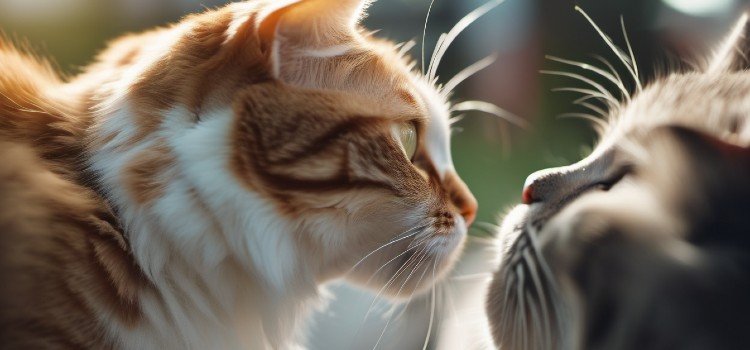
Conclusion
To sum up, if you’ve noticed that your cat smells like syrup, there are several potential reasons to consider. It could be a result of their diet, a metabolic disorder, or even a grooming issue. Remember to consult with your veterinarian to rule out any underlying health concerns.
Frequently Asked Questions On Why Does My Cat Smell Like Syrup
If your cat smells like syrup, it could be due to a condition called ketoacidosis, which is caused by high blood glucose levels. It is important to consult a veterinarian for proper diagnosis and treatment.
If your cat’s breath smells like syrup, it could be a sign of diabetes. Diabetes can cause a sweet or fruity odor due to glucose being excreted through the breath. It is advisable to seek veterinary care to properly manage the condition.
If your cat’s urine smells like syrup, it may be an indication of diabetes. High levels of glucose in the blood can affect the kidneys, resulting in sweet-smelling urine. Consult a veterinarian for an accurate diagnosis and suitable treatment.
Certain foods, such as high-carbohydrate or high-sugar diets, can contribute to the development of diabetes in cats. This can lead to a sweet or syrup-like odor. It is recommended to feed your cat a balanced and appropriate diet to prevent such issues.
While a syrup-like smell in cats can indicate a health issue like diabetes or ketoacidosis, it is not the only possible cause. Other factors like poor hygiene, urinary tract infections, or metabolic disorders can also contribute to such odors. Consult a veterinarian to determine the underlying cause and appropriate treatment.
By addressing the root cause, you can ensure your feline friend stays happy, healthy, and smelling fresh.
Amazon and the Amazon logo are trademarks of Amazon.com, Inc, or its affiliates.
